Students create petition to save Percussion Ensemble
185 students sign the percussion Ensemble petition in less than one weeks time.
The students often use marimbas like this during their performances and practices
May 15, 2018
After Percussion Ensemble was cut from the available course list for the 2018-2019 school year, students from that class created a petition in hopes of saving it.
“We have an amazing band, and behind them, we have an amazing percussion to keep giving us an amazing driving beat,” says band member Caden Campbell. “Without a great percussion section, it would be harder for us to keep a good groove. Without a good groove, the band loses some of what makes it entertaining.”
The petition, created by Kaitlyn Yee and Lynden Wagner, has garnered 186 signatures in just over a week and has recently been sent to the administration of the school.
Not just band students are affected though. “I’m honestly in disbelief that percussion ensemble has been cut from the course selection.” says Axel Manica, a junior in Jazz Choir and a star in the winter drama ‘Guys and Dolls.’
***Shortly after this article was published it was brought to our attention that Guitar 1 and 2 met at the same time, and as such were considered to have more than 7 students.
The full petition can be found below:
Greetings,
I am Kaitlyn Yee, a freshman here at Mead High School. I am currently in symphonic band, have participated in marching band, and am also in percussion ensemble.
It has become apparent that percussion ensemble will be discontinued as a class from next year forwards. We, the undersigned, would like to see this decision revoked.
It is understood that in the eyes of administration this course does not have enough people in order to be considered a class. However, traditional ensembles can consist of as low as three or four people depending on the music group. In this case, standard percussion ensemble sizes are seven to fifteen people. Knowing this, the seven to eight who had signed up for this class next year would be enough people to be considered a class; especially considering the normal size of such an ensemble.
Additionally, it is understood that there are classes here at Mead High School that have seven or less people that are currently, previously, or will be enrolled in them. For example, French 4 has seven people enrolled in that class. There were also seven people in one of the guitar classes offered first semester of this 2017-2018 school year. Whereas there are only three people in one class currently taking AP Spanish, and the Energy Academy Senior Capstone — and there will be only seven students in AP Research next year. While the seven to eight people who had signed up for percussion ensemble next year may be an understandably very small amount, the number of students wishing to take this class would match, and in some cases greatly surpass the total people in five other classes that are advocated for at this school. Besides this, the support of such a class would be a good investment for students and beneficial for the school overall.
For a musician, music reduces stress and eases anxiety. While playing music, blood travels through the brain to areas where stimuli produce feelings of contentment and joy — thereby traveling away from brain cell areas associated with depression and fear (source: Dr. Frederick Tim’s, reported in AMC Music News, June 2, 1999). Similarly, playing music can be used as a form of distraction from the outside world and stressful situations an individual may encounter. Many musicians find that music is a form of healing, and also a way to calm themselves down.
Likewise, as a result of being involved in a music program, teachers find that students experience elevated attitudes, and better overall behavior (Source: Arts Education Partnership, 2001). Similarly, 99.2% of parents find that their child’s involvement in a music program improves the parent-child relationship, communication, behavioral, and social skills (Source: Board or Studies, South Wales Australia, 2004); and 96% of school principals find musical involvement motivates kids to stay in school (Source: Harris Interactive Poll, 2006). In relation to the improvements seen, and the stress relief from musical participation, studies have shown that among any group in our society music students have the lowest levels of current or lifelong use of tobacco, alcohol, and illicit drugs (Source: H. Con. Res. 266, United States Senate, June 13, 2000).
Furthermore, the effects of musical involvement provide a widely known fact: musicians are generally better students. According to the National Education Longitudinal Study of 1998, high school music students have been shown to hold higher grade point averages than non-musicians at the same school. This may also be affected by a 93.3% attendance rate among music students, and contribute to the 90.2% graduation rate as of 2007 according to McGill University. Not only are musicians consistently better overall students, but also score much higher on the SAT (as well as other general tests) than any other students. 57 points higher on the verbal section of the SAT, and 41 points higher on math (Source: Music Educators National Conference, 2001). Although each individual student will be more successful, so will the school. Studies done by the International Association for the Evaluation of Education Achievement in 1988 showed that schools producing the highest academic achievement in the US are spending 20% – 30% of the day on the arts, with special emphasis on music.
Considering this, the benefits of music to students is apparent. However, while our school offers both concert and symphonic band, as well as jazz band, such positive and drastic effects on students will be lost to percussionists. While percussionists will still be playing, they will not be truly interacting with music in the way that they would be in percussion ensemble. Dr. Daniel Tones, an award-winning percussionist who has studied with some of Canada’s most well respected percussionists; as well as performed throughout Canada, the United States, and Asia, has been broadcasted nationally on radio television — described this situation perfectly in his Essential Elements of Percussion Education: The Percussion Ensemble. In paragraphs two and three he states:
“The large ensembles that have become a part of the established music education curriculum offer many benefits, but in some cases they may not best address percussionists’ particular musical needs. One of the most common concerns of percussionists in the concert band or symphony orchestra, for example, is that they are not given as integral a role as other instrumentalists. Consequently, they are not as actively engaged, and they spend far more time sitting idly. Although thoughtful repertoire selection may help to alleviate these concerns to a certain extent, establishing a chamber music ensemble specifically for percussionists is one of the most direct ways to facilitate musical growth. When combined with experience in large ensembles, these groups create a complimentary and effective model for percussion education.
Participating in a chamber ensemble provides any musician with a unique venue for artistic development and musical maturation. In the case of percussionists, playing in a percussion ensemble provides benefits that may not be realized through large ensemble involvement alone: (1) the small group setting allows an opportunity to focus on the performance techniques of specific Western and non-Western instruments, leading to a greater understanding of the creative potential inherent to the percussion family, (2) it assists in the development of advanced musical competencies, such as an acute awareness of texture, colour, dynamic contrast, and the shaping of musical contours – competencies not addressed comprehensively in the repertoire for many large ensembles, (3) it assists in developing listening skills that can be applied to numerous settings, including mixed chamber ensembles and section playing within a large ensemble, and (4) it encourages teamwork, collaboration, and camaraderie within the percussion section, thereby developing trust among section members and instilling values of personal responsibility and leadership.”
Despite being a much more advanced musician then high school students such as us, his ideas hold true for us as well. We, the percussionists in concert or symphonic band, all agree that we are not challenged during those classes and really don’t ever get a chance to improve or look deeper into the instruments we are playing. Leaving percussion ensemble to be our only source of improvement, and the only opportunity we have to focus in on the skills we are trying to advance in in a unique fashion. All of us currently enrolled in percussion ensemble either have extracurricular activities, or special circumstances preventing us from practicing after school, and a lack of time keeps us from doing this during lunch. Making it nearly impossible for us to improve outside of this class. Because of this, those of us wishing to continue our study of music after high school (myself included) may never be able to do so. Which in turn would prevent us from being able to pursue such studies as our career path if we had wished to do so.
Also mentioned above is the teamwork, collaboration, and camaraderie offered within such a class. Because this class is on the smaller side, we must rely on each other to do their part, more so than if you were in a concert or symphonic band setting. Additionally, with this class comes the opportunity to be surrounded by people with similar interests; the chance to build relationships with people whom you would not otherwise meet.
Our school continually expresses the idea of the “Mead Community”. By taking away this class, those of us who had wished to partake will be losing possibly one of our only chances to build relationships with other people who share their same interests, yet are of completely different ages, races, genders, and backgrounds. And will also be breaking bonds that have been founded within this class. Besides this our school consistently tells us to “get involved” in extracurricular activities, while you are taking our opportunities to do so away from us.
Those of us who had requested this course are quite disappointed by this decision — including those who had planned on taking this class. Tyler Bare, a current freshman states, “I’ve seen percussion ensemble perform and I’m more than amazed. I really want to be apart of the art these guys create, so I signed up for it. I put a ton of work and time into my auditions and when I learned that I made it in, I told all my friends and family that I was going to be a part of this group. It’s going to be more than upsetting to have this opportunity taken from me”. Most of the seniors in percussion ensemble, as well as other freshman including myself assisted Tyler in his auditions for the upcoming school year. He stayed hours after school for multiple days in order to learn completely foreign techniques and how to play instruments he had never touched before; in order to participate in this class. Of the seniors who helped Tyler in his auditions, Robert McKenna, one of our two jazz drummers, and a fellow band/percussion ensemble member expresses his agitation as he says, “Percussion is one of the foundational music programs at Mead. And why stop at Percussion Ensemble? You cut one of our classes, and you cut more and more, until we don’t have any music programs”.
This decision will impact more than just those who had hoped to participate in percussion ensemble. I asked multiple other band students how they felt about this and their responses reflected similar disappointment and concern as that of the percussionists. Sophomore Caden Campbell told me, “Well, we have an amazing band, and behind them we have an amazing percussion to keep giving us an amazing driving beat. Without a great percussion section, it would be harder for us to keep a good groove. Without a good groove, the band loses some of what makes it entertaining”. Caden’s concerns were shared by a fellow sophomore: Aiden Owen, as he states, “To quote the bassist Victor Wooten ‘You can’t hold no groove if you ain’t got no pocket’. The perc section creates the pocket for us to groove in, and they learn how to make that pocket in the perc ensemble. I’ve sadly only been to one perc ensemble show, but it was the best school function I’ve ever been to”. Similarly, senior Ryan Binkley pointed out to me that this decision will not only impact the students who are currently in band and percussion ensemble, but incoming students considering taking part in such programs as he says, “Perc is the centerpiece of grabbing the attention of the younger classes and involving themselves in bigger and better things”, meaning that without percussion ensemble, incoming students will be starting with an automatic disadvantage towards their possible futures in music after high school.
Beyond those who will be directly involved in the consequences of this decision, our entire music and fine arts program will suffer. I asked students involved in choir, orchestra, and drama what their opinions and concerns were in regard to this as I did with the band students. Their responses were once again almost exactly the same as all the others. Axel Manica — a current junior — starred in this years school musical Guys and Dolls, and also participates in jazz choir. His concerns included not only the after affects that will be felt by the band, but the impact this will hold on our entire music program, as he says, “I’m honestly in disbelief that percussion ensemble has been cut from the course selection. It stands out to me as a crucial class. First of all it is remarkably welcoming, open to those who have being working on percussion all their life, and to those who are looking for a way into the music program. I’ve watched as its pulled my friends into music, either improving and building onto, or completely teaching rhythm and other fundamentals of musicality. Going off of this, percussion has become the base of band and music in many ways. The fact of the matter is the stronger the percussion the stronger the band will be, and subsequently the stronger the choir and orchestra programs will be, as those participating in multiple programs can carry their deeper understanding of the fundamental musicianship that percussion ensemble teaches into the other music programs. Percussion ensemble creates and defines leaders, and strengthens the surrounding music programs. That can’t be let go”. In agreement with him, Sara Reeder, a fellow choir student, says, “Losing percussion ensemble is rather offensive, seeing as these people in it have worked just as hard as anyone else would have worked to be in any other music ensemble. It’s equivalent to taking away jazz choir/band! Those are a select group of musicians who worked hard to have the honor of being placed in this ensemble and you’re taking away possibly one of their only music outlets (which is rather detrimental seeing as music has huge positive effects on mental health). As a fellow musician, even though I’m a vocalist, this maddens and upsets me to see that all this hard work is being stripped away”. Like these choir/drama students, orchestra student Jackie Buchanan tells me, “One of the many editions to our music program is the percussion ensemble. This ensemble shows the unique side of MHS in many ways. Losing this ensemble will not only limit the creativity of this school, but be a major loss for the members, staff, and student body”. As students from other music branches find this disappointing, offensive, and angering in the same way as band and percussion students it’s clear that the effects will go far beyond those directly involved.
Considering the given state of our band program, cutting this class is irresponsible, as there is no band director to decide for themselves if they want to teach the class or not; a right that should be left for the teacher to decide. All things considered, the decision to cut percussion ensemble would be devastating to this entire school, and all students involved in the fine arts. But especially those who are currently, or who had wanted to be involved in this class. Dismissing our needs as percussionists and students by taking away our only outlet for growth would be detrimental to our stress relief, and our academic success. This remains unacceptable, and we ask that this decision would be revoked for the sake of the Mead High School percussionists, and entire fine arts program.
Thank you for taking the time to read our concerns, we look forward to hearing back from you.”
They have yet to hear a response from MHS Administration.

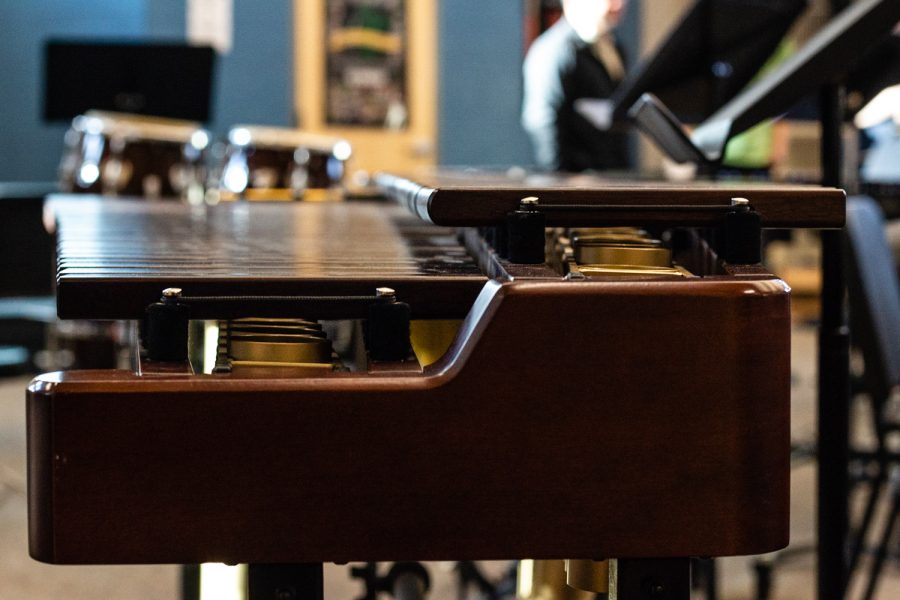
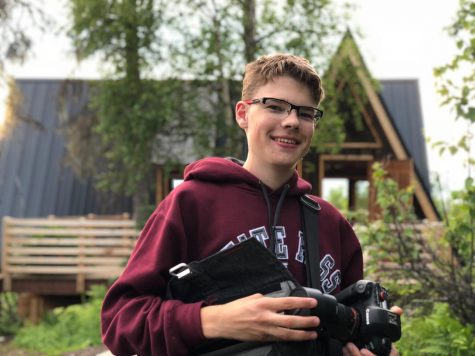
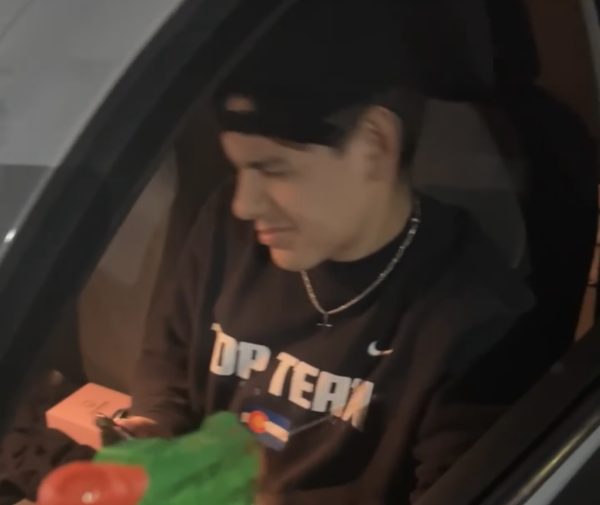
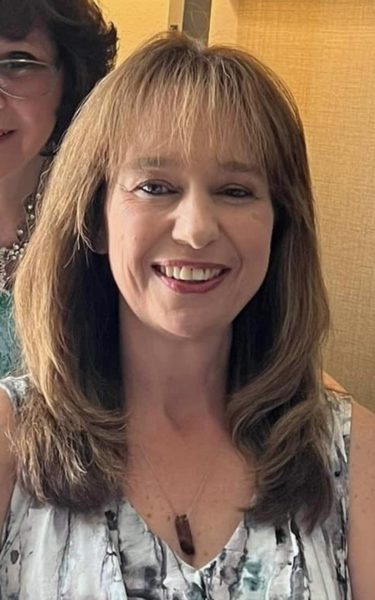



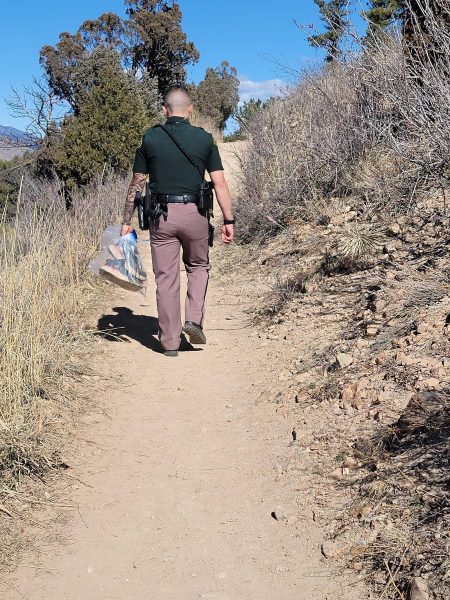
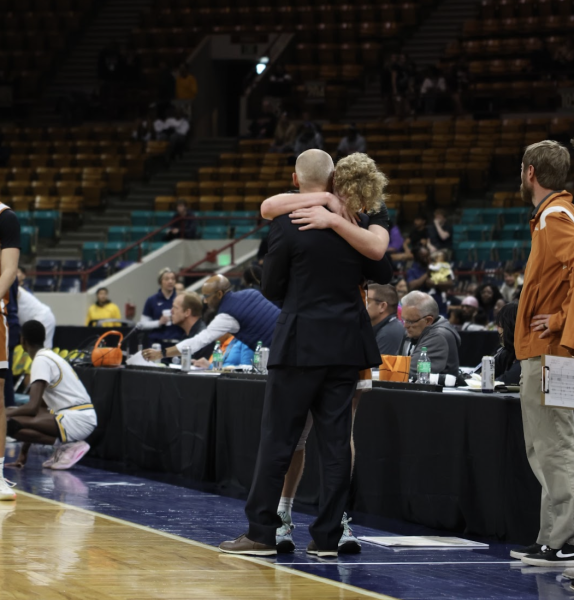



Caden Campbell • May 16, 2018 at 4:21 pm
This was a great article to read! I hope the petition works, especially with all of the support it has had so far!
Katarina Schmitt • May 16, 2018 at 4:11 pm
I fully support percussion ensemble and want to see it reinstated; however I do want to correct a statement in this article. There was not a guitar class with only seven students this year…Guitar 2 met concurrently with Guitar 1.
Jamie Hedlun • May 17, 2018 at 11:18 am
Thank you, we have updated our article!